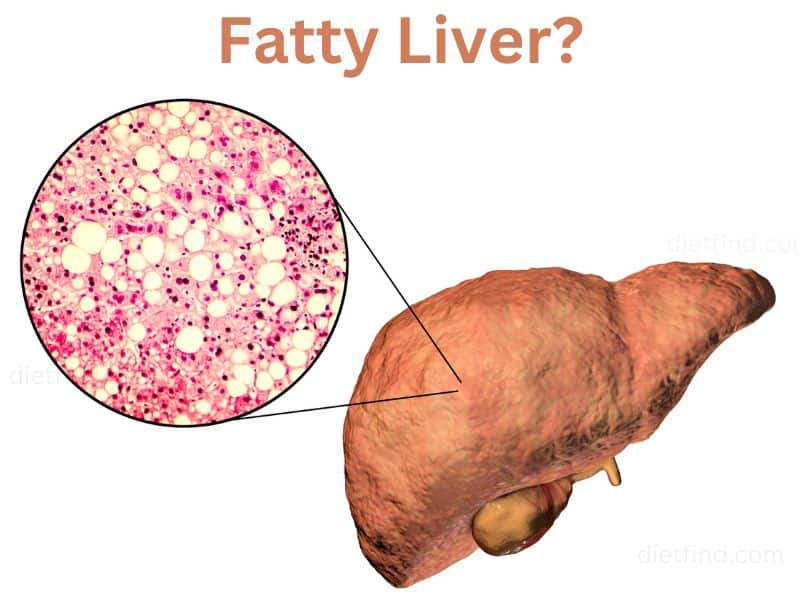What are the Best Foods for a Fatty Liver
Introduction to Fatty Liver Disease
Fatty liver disease, affecting approximately 100 million Americans, is the most common chronic liver condition. It can lead to serious health issues such as cirrhosis and cancer. The role of diet in managing this condition is crucial, as it can significantly influence the progression or reversal of the disease.
Understanding the Role of Diet in Fatty Liver Disease
The American Liver Foundation emphasizes that there are currently no medical treatments for non-alcoholic fatty liver disease (NAFLD). Therefore, the best strategies for prevention and management include:
- Eating a healthy diet
- Engaging in regular exercise
- Ensuring quality sleep
Lifestyle changes rather than strict diets are recommended for long-term sustainability and liver health improvement.
The Mediterranean Diet
The Mediterranean diet is widely recommended for individuals with fatty liver disease. This diet is known for its focus on:
- Fruits and Vegetables: A wide variety of fresh produce.
- Whole Grains: Nutrient-rich and fiber-packed grains.
- Nuts and Legumes: A great source of healthy fats and proteins.
- Olive Oil: Used as the primary fat source, rich in antioxidants.
- Herbs and Spices: For flavor without excessive salt.
- Moderate Fish and Seafood: Ideally a couple of times a week.
- Limited Poultry, Eggs, Cheese, and Yogurt: Consumed in moderation.
- Rare Sweets and Red Meat: Reserved for special occasions only.
This diet aligns well with the American Diabetes Association’s nutrition guidance, crucial since diabetes is a risk factor for fatty liver disease. It has also been associated with reduced risks of heart disease, lower blood pressure, and improved cholesterol levels.

Surprising Dietary Additions: Coffee and Olive Oil
It may be surprising to learn that certain foods typically restricted in diets are beneficial for liver health:
- Coffee: Up to three cups a day can be helpful.
- Olive Oil: Four tablespoons daily are recommended.
These additions are part of the broader Mediterranean diet, providing antioxidants and anti-inflammatory benefits.
Adapting to a Mediterranean Diet: Challenges and Solutions
Adopting the Mediterranean diet can be challenging due to the prevalence of convenience foods and unhealthy dietary options. Dietitians play a key role in helping patients transition to this healthier diet by:
- Individualizing nutrition plans.
- Setting realistic and attainable goals.
- Providing education on the benefits of the diet.
Lifestyle Modifications Alongside Dietary Changes
In addition to dietary adjustments, lifestyle modifications play a crucial role in managing fatty liver disease. It’s not just about what you eat, but also how you live. Key lifestyle changes include:
- Regular Physical Activity: Incorporating moderate to vigorous exercise, like brisk walking, cycling, or swimming, can significantly enhance liver health by reducing liver fat.
- Weight Management: Achieving and maintaining a healthy weight is essential, as obesity is a major risk factor for fatty liver disease.
- Stress Reduction: Chronic stress can exacerbate liver problems. Engaging in stress-reducing activities like yoga, meditation, or even simple breathing exercises can be beneficial.
- Avoiding Harmful Substances: Limiting alcohol intake and avoiding unnecessary medications or toxins can help protect liver health.
- Adequate Sleep: Ensuring quality sleep is vital, as it helps in the overall healing and rejuvenation of the body, including the liver.
By combining these lifestyle changes with the Mediterranean diet, individuals can take a holistic approach to improve their liver health and overall well-being.

Best Supplements for a Fatty Liver
Introduction to Supplements for Fatty Liver
While diet plays a pivotal role in managing fatty liver disease, certain supplements can also be beneficial. The connection between gut health and liver health is significant, and improving the former can lead to better liver health. The recent increase in both alcoholic and nonalcoholic fatty liver disease makes this topic increasingly relevant.
Key Supplements for Reducing Liver Fat
Several supplements have been identified as potentially helpful in reducing liver fat. These include:
- Multi-strain Probiotics: Known for improving gut health, which is closely linked to liver health.
- Silymarin (Milk Thistle): Demonstrated to reduce liver enzyme levels in NAFLD patients.
- Curcumin (Turmeric): Helpful in reducing liver enzymes and improving metabolic syndrome.
- Cinnamon: Can reduce elevated liver enzymes and improve insulin resistance.
- Carnitine: Found to reduce insulin resistance and liver enzymes.
- Choline: Essential for liver function.
- Coenzyme Q10: Shown to reduce liver enzymes and inflammation.
- Vitamin C and D: Helpful in improving liver health and metabolism.
For more detailed insights, resources like the National Center for Biotechnology Information (NCBI) provide extensive research studies on these supplements.

Deep Dive into Select Supplements
Further details on some key supplements include:
- Milk Thistle (Silymarin): Recommended at 280mg/day, it significantly reduces liver enzyme levels.
- Turmeric (Curcumin): A dose of 500mg/day helps reduce liver enzymes and improve metabolic indicators.
- Cinnamon: 750mg twice a day is shown to improve liver enzyme levels and metabolic health.
- Carnitine: 15g per day can significantly reduce insulin resistance and liver enzymes.
- Coenzyme Q10: A daily dose of 100mg has been found effective in reducing liver enzymes and inflammation.
- Vitamin D: While its effect on liver enzymes is uncertain, it is beneficial for reducing inflammation.
- Vitamin C: A daily dose of 1000mg is recommended for improving liver health and glucose metabolism.
Consulting Healthcare Professionals Before Supplement Intake
While supplements can offer significant benefits for fatty liver disease, it’s crucial to consult with healthcare professionals before starting any new supplement regimen. Individual health conditions, potential interactions with medications, and the specific stage of liver disease can all influence the effectiveness and safety of these supplements. Healthcare providers can offer personalized advice based on:
- Current Health Status: Understanding your overall health to ensure supplements do not cause adverse effects.
- Medication Interactions: Assessing potential interactions with existing medications to avoid harmful side effects.
- Tailored Dosage Recommendations: Providing specific dosages that are safe and effective for your particular condition.
- Monitoring Progress: Regular check-ups to monitor the liver’s response to the supplements and adjust the regimen as necessary.
This personalized approach ensures that the supplement regimen contributes positively to managing fatty liver disease, maximizing benefits while minimizing risks.
FAQs
- What is the best supplement for fatty liver? Multi-strain probiotics, silymarin, curcumin, and others mentioned above are among the best.
- Can supplements cure fatty liver disease? While supplements can’t cure fatty liver disease, they can aid in managing it alongside a healthy diet.
- Are there any side effects of these supplements? It’s important to consult with a healthcare provider before starting any new supplement regime.
A Comprehensive Approach to Managing Fatty Liver Disease
In conclusion, managing fatty liver disease requires a multifaceted approach that combines both dietary choices and supplement intake. The Mediterranean diet stands out as a beneficial dietary pattern, rich in whole foods, healthy fats, and anti-inflammatory ingredients. It’s complemented by surprising additions like coffee and olive oil, which offer unique benefits for liver health. On the supplement front, substances like probiotics, silymarin, curcumin, and others hold promise in supporting liver health, especially when tailored to individual needs by healthcare professionals.
However, it’s important to remember that these dietary and supplemental strategies are most effective when part of a broader lifestyle change. Regular physical activity, weight management, stress reduction, avoiding harmful substances, and ensuring adequate sleep are equally important in nurturing liver health. Additionally, consulting with healthcare professionals is crucial to ensure safety and effectiveness, especially when incorporating supplements into your regimen.
By embracing these comprehensive dietary and lifestyle changes, individuals can take proactive steps towards managing fatty liver disease, improving their liver health, and enhancing their overall well-being.
© 2023 by DietFind.com. All rights reserved. No part of this document may be reproduced or transmitted in any form or by any means, electronic, mechanical, photocopying, recording, or otherwise, without prior written permission of DietFind.com.

